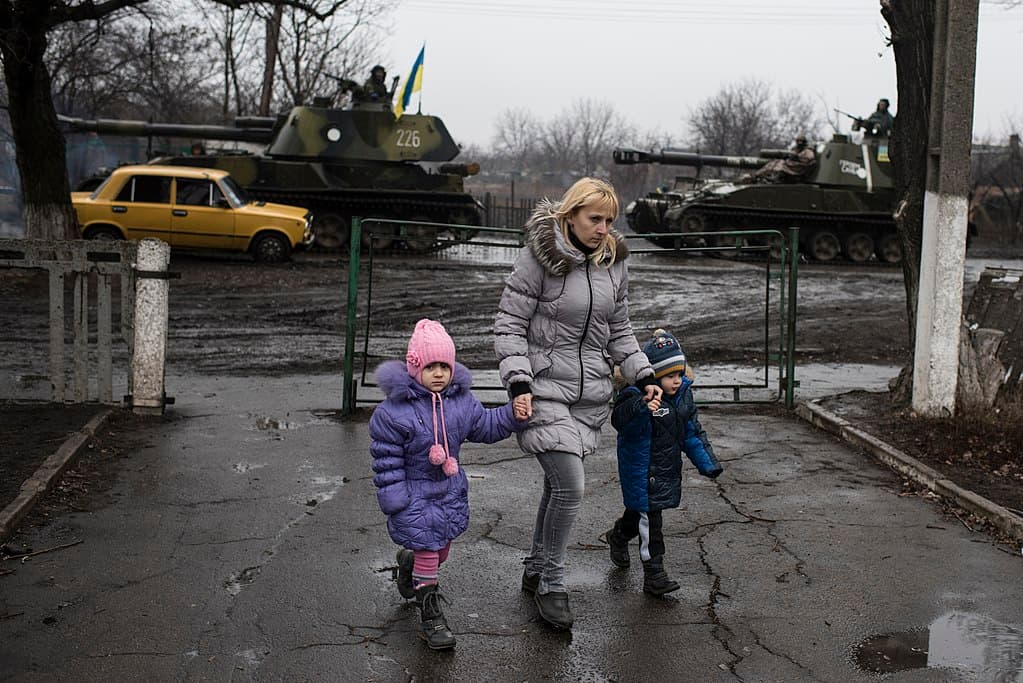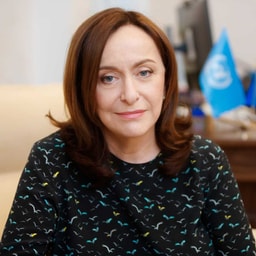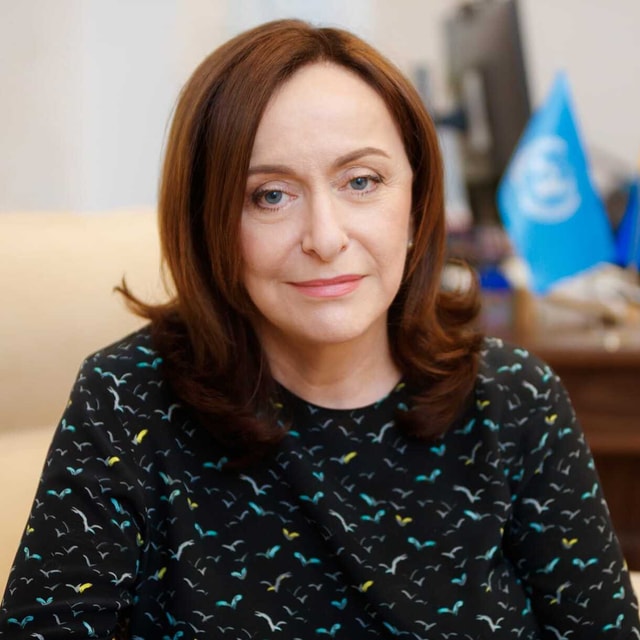Osnat Lubrani: UN will continue to deliver for all Ukrainians leaving no one behind

I rely on personal connections in my line of work. Since arriving in Ukraine as the United Nations’Resident Coordinator and Humanitarian Coordinator in 2018, I’ve travelled across the country, listening to Ukrainians and hearing about their hopes and aspirations, but also their concerns.
This is a troubling time for all Ukrainians, but it is also a time for them to cherish their resilience. Ukrainians have set their sights on a better future. They are committed to reforms that seek to lay the foundations of democratic development, prosperity, justice, and equality for all. We at the UN are here to act in solidarity with the Ukrainian people and their government in pursuit of these goals.
I am convinced of Ukraine’s great potential. This is a country blessed with a wealth of land and resources, not least its highly educated and motivated people. Using these assets, Ukraine has the means to achieve its high ambitions on a range of future-oriented goals, from the green and just transition to inclusive growth and digitalization.
At the same time, we can’t deny the hard humanitarian reality. For too many Ukrainians, life remains a day-to-day struggle. That’s particularly true for those in Donetsk and Luhansk oblasts, whose lives are marred by a prolonged conflict now entering its eighth year.
In recent years, the politicization of the COVID crisis, has made the so-called contact line carved by the conflict even more difficult to traverse, depriving millions of vulnerable people of basic services and livelihoods. Geopolitical tensions in the region only threaten to exacerbate these hardships.
There have been glimmers of hope in this general gloom. In March 2020, at the onset of the pandemic, UN Secretary General António Guterres called for a global ceasefire to allow the world to concentrate on the health and climate emergency. Months later, in July, came an agreement for a new ceasefire in eastern Ukraine, showing that diplomacy can and should work. That ceasefire continues to largely hold, if precariously, and last year saw the lowest number of civilian casualties since 2014. Yet there are concerns that a larger conflict could reignite. These days in Ukraine it feels as if we are all living in a state of constant high-level preparedness. Yet life, and our work, goes on.
This also means looking to the future. Together with our partners, we’re here to support Ukrainian ambitions. Ukrainians deserve effective and accountable institutions, and to live in a country that safeguards human rights, pursues gender equality, and creates opportunities for its youth. Considerable progress has been made in this regard in recent years.
This progress for and by the people of Ukraine should not be side-lined. We all have a role in building confidence and laying the foundations for peace and a brighter future. That also means actively rooting out the triggers of violence and conflict, including hate speech and disinformation.
The UN stands by Ukraine in these efforts. There is still much work to do. The UN has been operating in Ukraine since 1992, staying and delivering during the tumultuous days of the 2014 revolution of dignity, as well as the armed conflict that followed. We are committed to continuing our work.
In the coming days, my team and I will develop, together with the government and other stakeholders, the next UN Cooperation Framework, which will shape our partnership in Ukraine over the next five years as we support Ukrainians build the country they aspire to.
We are in this for the long run, side by side. And we aren’t alone. We’re helping coordinate international assistance for Ukraine as it pursues this ambitious reform and development agenda. This wider support will be on display this summer in Switzerland as stakeholders meet to discuss the way forward at the annual Ukraine Reform Conference.
Above all, the UN remains fully committed to a sovereign, independent, and united Ukraine within its internationally recognized borders. We know that any new escalation in or around Ukraine would only mean more death and destruction and would serve a serious blow to international peace and security.
Even talk of a possible escalation has been enough to already needlessly hurt economies and societies, in Ukraine and the wider region. On a global level, these tensions are putting pressure on national currencies and deterring much-needed investments that could in turn contribute to prosperity and development.
This is a troubling moment. As the Secretary-General has repeatedly stated, the United Nations supports all ongoing diplomatic efforts aimed at preserving peace in Ukraine and regional security. Together with the citizens of Ukraine, we place our hopes in diplomacy and dialogue to de-escalate tensions.
I'm convinced that Ukraine’s aspirations are bigger than its problems. So, as we brave these uncertain times together, I’d like to remind Ukrainians of their many strengths, not least the resilience of their fellow citizens. In self-belief, I ask them to keep their eyes fixed on their objectives for a better life. Ukrainians can count on the UN to help reach that future.










